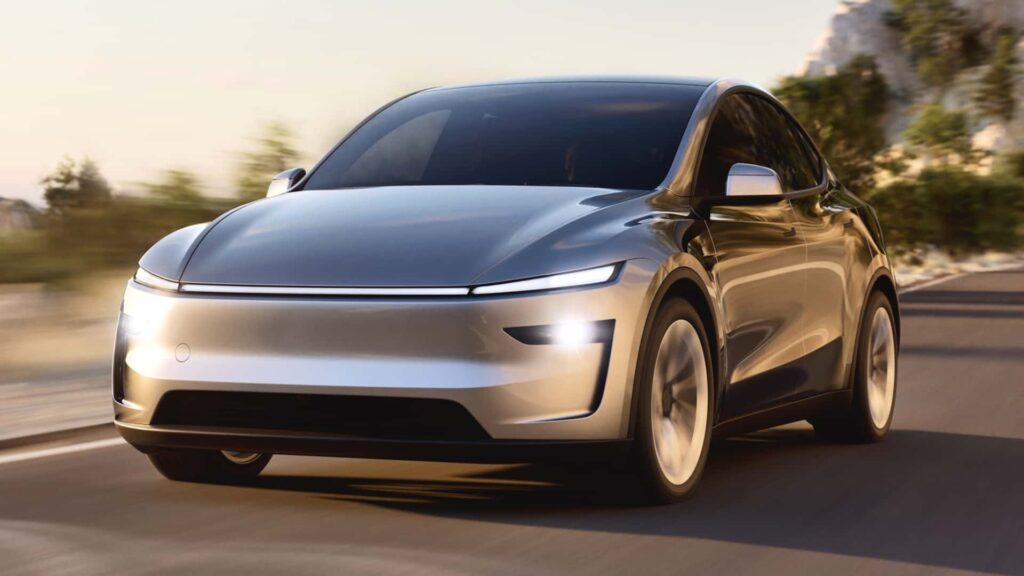Tesla fans have been eagerly awaiting the launch of the Performance and seven-seater variants of the best-selling Model Y, and it seems that their patience will soon be rewarded. The automaker has confirmed that both options are set to be released later this year, with the refreshed Model Y already starting to roll out to customers.
During a recent episode of Jay Leno’s Garage, Tesla’s VP of Vehicle Engineering, Lars Moravy, revealed that the Performance and seven-seater options will follow the launch edition of the Model Y. While Tesla has not provided specific details about the Performance variant, comparisons to the Model 3 Performance suggest that it may come with higher power output, suspension tweaks, and visual enhancements to set it apart from other trims.
The current launch edition of the Model Y features a Dual Motor setup with 455 horsepower and 430 pound-feet of torque, allowing it to go from zero to 60 MPH in 4.1 seconds. However, the Performance version is expected to offer even more power, promising a significant boost in performance.
In terms of pricing, Tesla took a unique approach by introducing the refreshed Model Y alongside the older version. The launch edition is currently priced at $59,990, which is $8,500 more than the outgoing Model Y Performance. As Tesla transitions its factories to produce the new variant, prices are expected to drop, with the base Dual Motor Model Y likely starting at around $46,990.
For customers in China, the refreshed Model Y is priced even lower, with the RWD variant costing approximately $36,000 and the Long Range Dual Motor around $41,500. These competitive prices make the Model Y an attractive option for electric vehicle buyers in the Chinese market.
Overall, the impending launch of the Performance and seven-seater variants of the Model Y is generating excitement among Tesla enthusiasts. With improved performance, updated features, and more competitive pricing, the refreshed Model Y is poised to build on the success of its predecessor and continue Tesla’s dominance in the electric vehicle market. Historically, Tesla’s vehicle prices in China for locally-built cars have been lower than in the U.S. This pricing strategy has helped Tesla gain a strong foothold in the Chinese market, where demand for electric vehicles is rapidly growing. The affordability of Tesla’s locally-built cars has made them a popular choice among Chinese consumers, who are increasingly looking to switch to electric vehicles for environmental and economic reasons.
The Model Y, one of Tesla’s most popular models, is set to receive additional trims in China later this year. While Tesla has not yet disclosed the exact timeline for the launch of these new trims, it is expected that they will offer more options for Chinese consumers to choose from. This move could help Tesla further expand its market share in China and cater to the diverse needs of Chinese customers.
Tesla’s pricing strategy in China may also be aimed at maximizing profits from early adopters and clearing out existing non-refreshed inventory. By offering competitive prices for its locally-built cars, Tesla can attract more customers and drive sales in the Chinese market. However, with increasing competition and political controversies surrounding Tesla’s CEO, Elon Musk, the company faces challenges in maintaining its sales momentum.
Despite the introduction of refreshed models like the Model Y Performance, Tesla will need to work hard to stay ahead in the competitive Chinese market. The success of the new trims and upgrades will ultimately depend on how well they resonate with Chinese consumers and meet their evolving needs. As Tesla navigates these challenges, it remains to be seen whether the company can overcome its sales slump and continue to thrive in the Chinese electric vehicle market.
In conclusion, Tesla’s historically lower vehicle prices in China for locally-built cars have been a key factor in the company’s success in the Chinese market. With the introduction of new trims for the Model Y and a focus on meeting the needs of Chinese consumers, Tesla is poised to strengthen its position in China and drive sales growth. However, the company will need to navigate challenges such as increased competition and political controversies to sustain its success in the long run.

